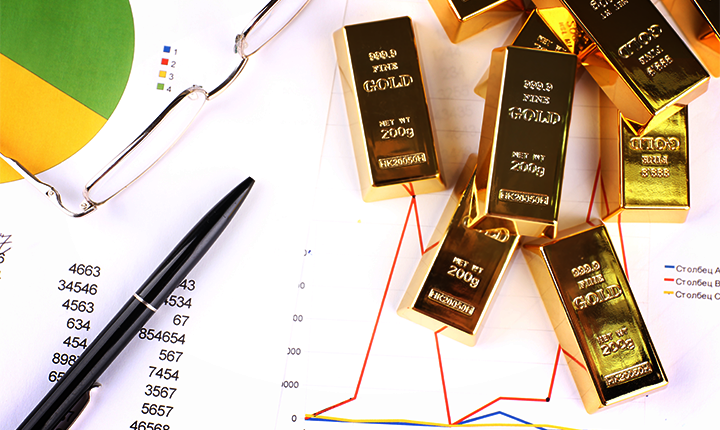Gold prices settled at seven-year highs last week. Analysts believe they are tending to head even higher. Another fall follows the stock market’s sell-off and rally. Still, gold prices will not suffer a further notable reversal. We’ve seen a similar pattern during the 2008 global financial crisis.
Gold for June delivery closed at $1,740 an ounce last week, while the spot price for the precious metal was $1,685. At a time when few safe havens are available to investors, gold offers considerable upside potential.
Amid the 2008 financial crisis, the Fed acted to stimulate the US’s economy with its $700 billion “big bazooka.” Following that action, gold prices climbed higher from mid-October 2008. Last week, global stock markets rebounded similarly. In March 2009, stock indexes were crushed again. Gold prices, on the contrary, carried on up and up to a new all-time high in 2011.
Gold may soon reach a record of $2000
Peter Grosskopf, chief executive officer of Sprott, believes the metal prices may rise beyond a record. He stated that the company follows trading and flows in the bullion markets and the underlying technical analysis, which point to the metal over $2,000 sometime late this year or early next.
Jeb Handwerger, an editor of Gold Stock Trades, said that the precious metal usually goes through a shakeout of weak hands before hitting new highs.
Global governments have taken stimulus measures amounting to $8tn.
The Fed has adopted record stimulus packages.
The International Monetary Fund has opened a $1tn line of new borrowing facilities. The European Union signed off a $590bn emergency program last week.
Speculators in precious metals have not forgotten what such stimulus measures mean for gold prices. The world is printing money, which is the cause of the devaluation of paper currency. Meantime, the supply of monetary metals stays static, and their price climbs up as a result.
Coronavirus has affected the supply of the precious metal
Exchange-traded funds used to hold gold. At the end of last month, ETF gold holdings reached a record high of 3,185 tonnes worth $165bn. Many online dealers of bullion are out of stock.
However, everything is not an exact copy of the 2008 financial crisis. For example, Chinese retail outlets closed and gold buying by Chinese consumers crushed.
Since oil prices dropped by the collapse in demand, the Central Bank of Russia stopped gold purchases.
Gold is quite a tight market, and supply of the precious metal is affected by the coronavirus. Many mines have shuttered around the world.
An opportunity in the gold-mining space is also growing. Grosskopf says that it is a great time to buy gold assets which were sold off with general equities in a rush to meet margin calls last month. Their margins will be progressing at record levels.
Peter Cooper, an analyst for Gulf finance, says that if the observations about gold prices prove correct, it’s obvious where the stock market is going next. Trillions of dollars of stimulus in the pipeline have already decided the outlook of precious metal prices, said the analyst.
















